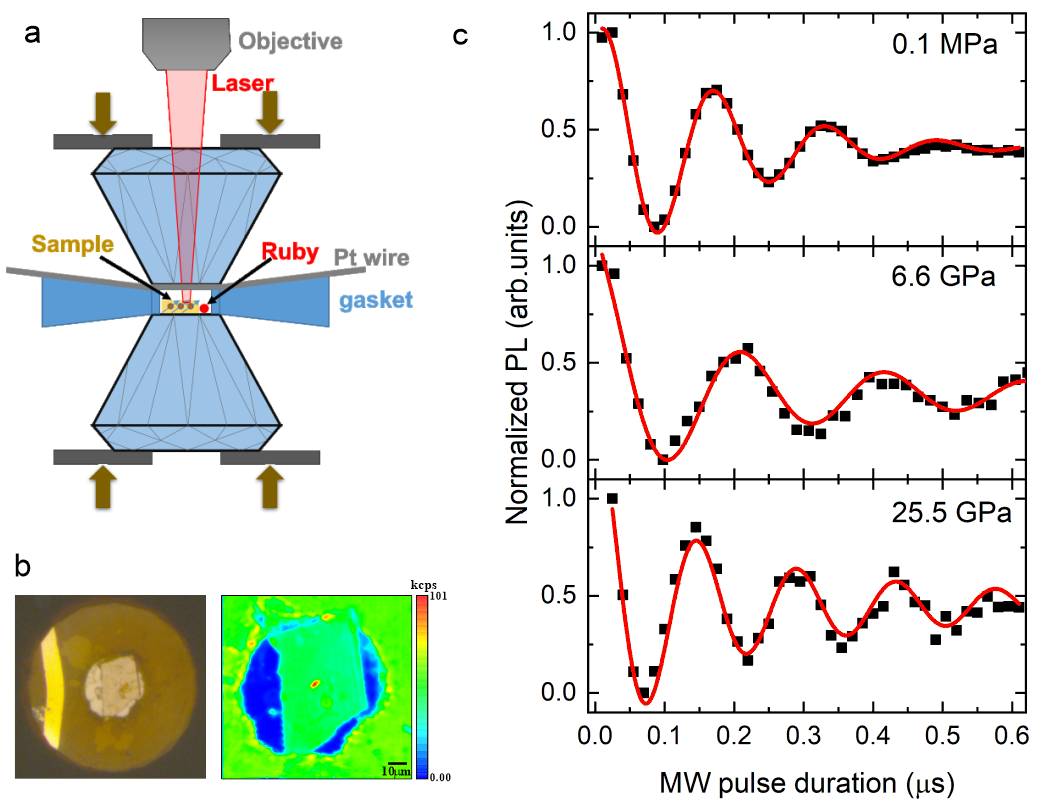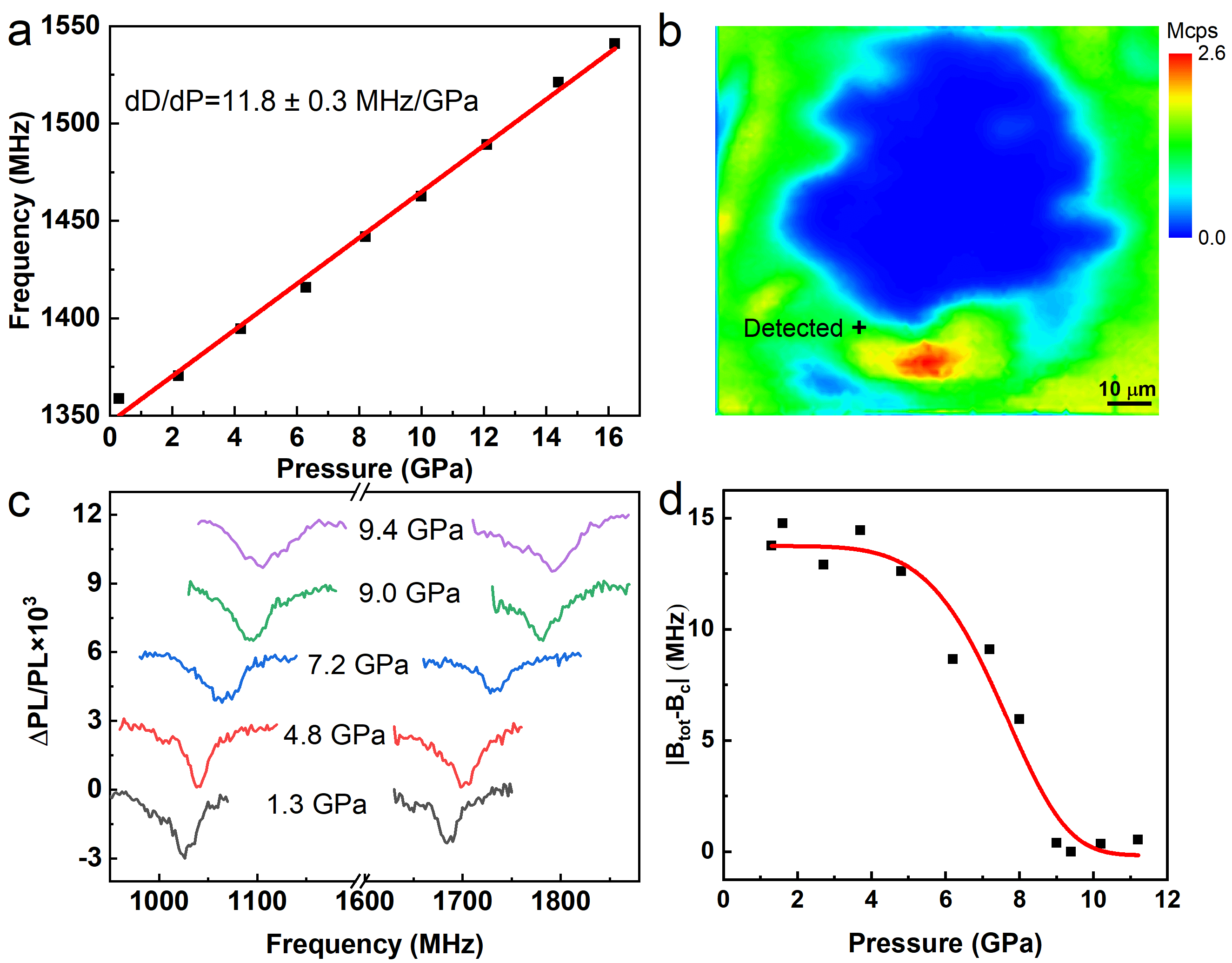
Substances exhibit many novel properties under high pressure, for example, pressure can induce insulator-metal or even superconductor transition. However, in-situ magnetic measurement is always a difficult problem in high pressure research and restricts the study of superconductor's Meissner effect and magnetic phase transition behavior of magnetic materials at high pressures.
A new high pressure in-situ magnetic detection method was developed recently by a collaborated research group of Hefei Institutes of Physical Science (HFIPS) of Chinese Academy of Sciences, University of Science and Technology of China, and Sichuan University, which paves the way to use divacancy in quantum technologies as pressure sensing and magnetic detection at high pressures.
The results were published on Nano Letters.
"Now, for the first time, we realized coherent control and high-pressure magnetic detection of divacancy defects in SiC spin quantum states under high pressure," said LIU Xiaodi, co-lead of the project and associate Professor from HFIPS.
In this research, they used spin quantum sensing technology of silicon carbide divacancy defects, diamond anvil cell (DAC) technology, and optically detected magnetic resonance (ODMR) technology. Based on these technologies, the team realized coherent control of the quantum states of silicon carbide divacancy defects under high pressure and magnetic detection based on the spin of silicon carbide divacancy defects.
The divacancy defect spin in silicon carbide is highly responsive to external pressure and magnetic field, and these responses can be measured by highly sensitive ODMR spectra, thus characterizing the pressure and magnetic state of the sample under high pressure.
The optical and spin properties of divacancy defects in SiC under high pressure have been systematically studied. The results show that the pressure sensing sensitivity of double vacancy PL5 defect is 0.28MPa/Hz-1/2. And based on the coherent control of spin quantum states of divacancy in SiC under high pressure, the ferromagneto-paramagnetic phase transition of magnetic Nd2Fe14B was detected under high pressure.
The above work was supported by the National Natural Science Foundation of China, the Ministry of Science and Technology, the Youth Innovation Promotion Association of CAS, the Hefei Institutes of Physical Science, the University of Science and Technology of China and Sichuan University.

The optical and spin properties of silicon carbide divacancy defects under high pressure were studied by using diamond anvil cell. (Image by LIU Lin)

Detection of pressure-induced magnetic phase transition of a Nd2Fe14B magnet using PL6 defects. (Image by LIU Lin)